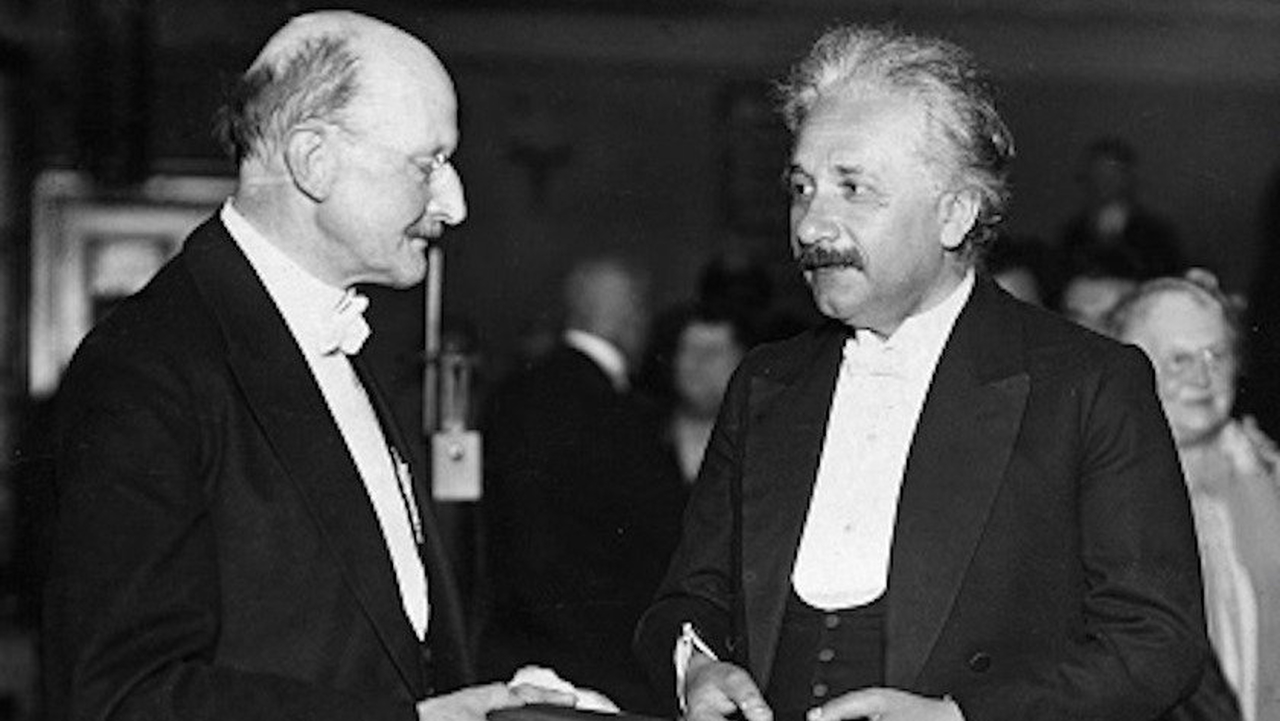The institution of marriage should be intended to enrich our lives. Certainly we might agree that the purpose of marriage ought to be to enhance our life and further our sense of meaning, purpose and gratification. Yet this expectation meets with an incredible rate of disappointment, if not outright failure. Ironically, marriage often becomes the justification for people’s unhappiness.
The fact that more than fifty percent of marriages end in divorce is actually the lesser of the problem. The greater difficulty lies in the fact that the majority of intact marriages are far from joyful. And many people regrettably live out their lives that way.
Remaining in the discontent and lethargy of an unhappy marriage, dulled by the absence of a more hopeful vision, can be downright depressing. And yet, so many people resign themselves to such lives.
Many individuals in such relationships merely give up and don’t work on improving their relations. They stay stuck in their unhappiness due to their fears. Divorce, although tumultuous and potentially scarring, at least provides the possibility of better days. I’m not glibly promoting divorce but suggesting that we do every thing in our power to awaken our relationships and live more meaningfully. Let’s take a deeper look at this dilemma.
The Fear Factor
Fear is the greatest impediment to growth in our lives. Very often, people are literally afraid of sharing their true feelings with their partners. They go silent and angry rather than expose their more vulnerable feelings. The fear may run the gamut: the fear of divorce and its incumbent anxieties or simply the avoidance of coming to terms with a relationship that may be lacking in intimacy, passion or respect. Another poignant fear may simply be the anxiety of being alone and starting life over again..
When you stay married out of fear, the emotional paralysis that pervades further poisons the relationship. Staying together out of resignation – due to fear – results in an enigmatic dilemma. Such people won’t consider divorce, and yet they are convinced that their marriage won’t improve, so they don’t work on the relationship. This is the worst of all possible scenarios.
If you find yourself in this place, it’s essential that you address your fears. The fear of divorce paradoxically eliminates any chance of improvement in the relationship. It produces a state of inertia, and the ensuing stagnation and frustration make mediocre marriages even worse. They become imprisoning.
If we can work through the fears around separation, then we are electing to stay in the marriage not from fear but from choice. This movement begins to unburden the chronic state of unhappiness, and genuine marital therapy may begin. In other words, processing the fear of divorce is not necessarily for the purpose of divorcing; it is for the purpose of clarity.
Am I staying married for the wrong reasons?
Fear filters our perceptions and participates in constructing our reality. The ways in which you see your partner are very much informed by your emotions, particularly anger. This anger may have arisen in part because you’re feeling mired in a hopeless relationship.
Getting unstuck permits you to either create a healthier relationship or to move forward. Either choice may be preferable to remaining unhappy without a glimmer of hope. Fear should not be a factor in your choice. Ultimately, the question is how much happiness you feel you deserve. It is not selfish to deserve happiness. In fact, to forgo your own contentment becomes a model of unhealthy self-sacrifice for your children – who will likely suffer in their own self-esteem by having parents who betrayed their own fulfillment.
For the Sake of the Children
One prevailing theme related to fear of divorce is that the act of divorce, in and of itself, will damage the children. People research multiple studies to substantiate this concern. By all means such an upheaval in our children’s lives should not be taken lightly. Divorce needs to be well considered, and navigating the children through this process should be undertaken with insight, reflection and empathy.
Yet, very few people consider the consequences of children growing up in unhappy yet intact homes, as they witness conflicted, unloving and uncooperative parental relations. Children tend to model what they see in their parents’ relations. Certainly, as parents we want better for our kids. Yet, the likelihood is that such children will incline toward similar marriages. Worse still, many parents claim their kids really don’t know anything is wrong with the marriage. The irony is that they will therefore normalize what may be a mediocre, disappointing or conflicted marriage. At least the kids ought to know that the marriage is indeed falling short of the mark. In that way, they can note the failure and aim higher for themselves when they come of age.
The legacy of unhappiness
Is this the legacy we want for our children? To be the best we can be as parents we need to model a level of authenticity in our lives. One in which we face our challenges and struggles and don’t succumb to fear. Isn’t that what we’d want for them? If you choose to stay married, commit to the process and model that commitment for your children. If your marriage precludes the opportunity for happiness, have the courage to face your fears. Let’s not claim that we’re protecting our children by exposing them to unhealthy relations. We need to face our fears, embrace them and choose to stay married from a healthy place of growth and hopefulness, not succumb to the deprivation of a joyless life.
More Content from Mel
Podcast 092: Here’s Why We Fall Out of Love





I need to ask…Is there a point in a marriage, an age, a value that says “it is not all about me” and is the risk to the other people in the family really worth it ? N
“Suppositions” about relationship include those deadly “expectations” about relationship. Think about the last time you jumped up and down about how your relationship exceeded expectations. Now, think of how often expectations are low or non-existent. Which is worse? It’s within Prince(ss) Charming’s realm that all expectations are equally bad. Because expectations rarely reflect reality, once partners hit the reality part, bad things can happen. That’s especially pertinent if kids are involved. Today’s kids want to avoid the reality-of-relationship-as-they-observe-it just as much as I did. Just like me, they don’t have healthy modeling to show them how. Children are too cognitively immature to understand when divorced parents enter a period (or periods) of new relationship bliss only to repeat the same old same old behavior as before. So the caveat I would add is that divorced parents be required to sort out their ineffectiveness at relationship while continuing to parent. Kids see that parents continue to learn, change and grow; that unhealthiness doesn’t have to last forever. That’s valuable modeling on its own. It may be true that it takes 5 generations to really see change in a family system, but continuing the pattern of relationship disaster only leaves unhappiness as its legacy.
Great points about parenting Kathe. I believe that expectations in regard to relationships shouldn’t always be reduced to our own childhood experiences though. Many times there is a compensation in which people see the damage done and sign on to not settling for less for themselves.
I couldn’t agree with you more Mel!!! Thanks for sharing that. Its nice to see that being put out there.
You’re quite welcome April, glad you appreciated it.
[…] via The Wrong Reasons for Staying Married. […]
Thank you Mel, once again launching an interesting discussion with your blog post. That is a worthy challenge to face one’s mediocre or unfulfilled relationship needs. Working with yet another couple dealing with infidelity recently delivered to me a greater respect for folks who stay stuck for good reasons. I just got accepted on Bill Doherty’s Marriage Friendly Therapists list and I think I may be a little more to another side of your continuum-on the side that does not praise the fulfillment awaiting the divorced-but works very hard at bringing that possibility to the couple-gay, lesbian or straight who sit with me and pay me for it too.
Marital therapies already pan out in the research as being a pathway to divorce until the Gottman team research hit the scene and started transforming our views, our approaches and our outcomes. I know I changed on the spot-both in my practice and in my marriage as soon as I heard Gottman’s keynote at Evolution of Psychotherapy in 2000-it was revolutionary. A close colleague next to me found it confusing, did not see the point, and asked me to explain. She was doing a few of the poisons herself with her husband and the new information was too threatening. So fear is how you are describing it. I think I will call it threat-a survival threat gets triggered.
I will expand on this moment in my own blog so as not to get off topic here-but my point is-the folks in suffering marriages already have enough help toward divorce especially from therapists who are not keeping up with the research and what to do with it.
When my recent infidelity struggling couple announced that they were going to stay together and not move forward in the ways they acknowledged would help them-that more pain was anticipated but for them it was as good as it gets and damn good for all considering….I deferred. I imagined being in their shoes and trying to see how staying together is wise for them. And I recall that the cheating partner said that he is changing but very slowly-perhaps too slowly for his mate. It is new for me to not presume with an opinion that they would be better off divorced-and I think it feels really positive for me.
Transformation can come in many ways at many rates and I ask myself questions like, “What did I not think of yet that is hope for change for them for something better within their marriage on their terms not mine? Did I bring inspiration to the work? Can I let them hover at the place they remain without judging them as needing to be free of it?”
Hi Shannon and thanks for your insightful commentary.I value your closing comments in particular and certainly the issue around therapists’ opinions. Transformation of course isn’t likely to occur with direction from another. Yet, my belief and experience is that fear impedes transformation. Perhaps my post didn’t quite communicate with enough clarity that I am not seeking nor suggesting either divorce or the continuation of the marriage. What I am promoting is a commitment to authentic process, disencumbered by the silence that the fear of divorce often stirs.